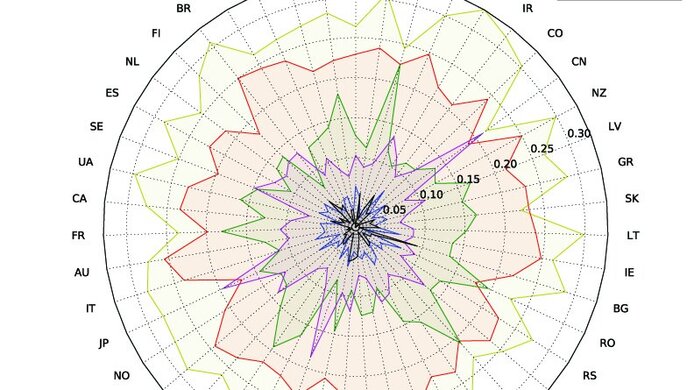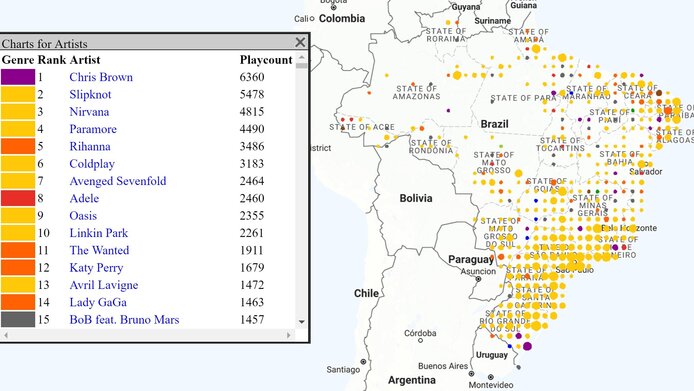Identifying tomorrow’s hit music today

Selecting the right music at any given time is an art form, and the DJ scene is currently enjoying an unparalleled boom. The task of DJs is often considered as being just as important as producing the music that they play, and many of them are coveted international stars. No wonder: never before has there been so much music around, never before such a host of styles and blends of styles.
Recommendations that hit the target
This represents a challenge for electronic music services: whereas classical radio channels simply play one track after the other, these services are expected to provide automated recommendations for music that fits with the track one has just heard, with the specific preferences of the listener and with the occasion in question. This ability is often a vital ingredient of a business model: advertising customers want to hit their target audiences reliably, and the better the automatic recommendations work, the more effectively an ad can be placed. In our daily lives we know such methods of automated content selection from YouTube or Amazon, but also from digital music services such as Spotify, the guiding principle being that customers who have bought A will also buy B.
Understanding listening patterns
Translating the skills of DJs into the digital world is the research field of Markus Schedl from the Department of Computational Perception at the Johannes Kepler University in Linz. In his FWF-funded project, he explores how listeners as well as music items can be modelled, and how such models can be used for an automated selection of music. The aim here is not only understanding current listening behaviour; it is also a matter of identifying trends as early as possible in order to be able, ideally, to predict the tunes that will be tomorrow's hits.
Analysing social media data
In order to learn about listening patterns the scientists analyse data from various social media platforms such as Twitter. “Twitter offers a service to syphon off one or two percent of all tweets. First we need to learn which tweets include music listening events”, says Schedl. He only uses tweets that include the name of an artist or a song. It is also important to know the location of the person, as there is great geographical diversity in listening behaviour. “In the US, the relationship between hip-hop and rock is about 2:1. In South America it is the opposite. We also get confirmation of some clichés: nowhere else do people listen to so much reggae, in relative terms, as in Jamaica.”
The results are then compared with traditional music charts. It has been found that some countries have a listening profile that is very similar to the worldwide average: in the US, the UK and Greece, for instance, Twitter users mainly listen to music that ranks high on the global charts. Pakistan or Vietnam, on the other hand, show results that are far from the mainstream. For this type of categorisation having GPS data in the tweets is vital. The investigations aim not only at determining just the popularity of songs and music groups, but also at making some finer distinctions: has a song been popular for a lengthy period? Or is it ‘hot’, i.e. generating more attention right now? This is the type of information that can be gleaned from tweets or the content of other online platforms. Some companies are already specialising in this type of music classification.
Integrating cultural dimensions
Another topical issue investigated by the computer scientist Markus Schedl is the influence of cultural factors on listening patterns and music search behaviour. In order to do that, he characterises countries by means of their ‘cultural dimension’. One of the characteristic aspects in this context is ‘indulgence’, or, in other words, the inclination to do pleasurable things or nothing at all. “It’s been shown that people who like to party and have a positive lifestyle have a narrower taste in music”, notes Schedl.
Finding without searching
A third aim of the project is the development of new, innovative music interfaces that are precisely geared to the personality of the respective listener: does a person only want to listen to familiar music? Or are they interested in experimenting and open for new things? The purpose to be fulfilled by the music is also a vital aspect: is someone selecting music for themselves, or are they making up a playlist for a party? An important notion in this context is serendipity, or the possibility of turning up something other than what one was looking for. The selection of formerly unknown tracks is a particular challenge for automatic music selection systems. “In total, we have managed to collect and analyse more than a billion listening events for our research”, notes Schedl. “This enables us to create detailed user profiles informed by factors such as openness for new things or staying close to the mainstream.”
Gold rush
The umbrella term for research of this kind is ‘social media mining’. The term ’mining’ denotes the extraction of valuable resources. And there is indeed a genuine gold rush in this field. Almost all big IT groups are intensively collecting user data, with Google and Facebook in the lead, but also Amazon or Microsoft. A lot of development work in this domain is done behind closed doors, many of the practices are criticised as being non-transparent or even dangerous. Publicly funded basic research such as that undertaken by Markus Schedl can contribute to identifying all possibilities in this field.
Personal details Markus Schedl is an associate professor at the Department of Computational Perception at the Johannes Kepler University of Linz (JKU). His main research interests are recommendation systems, data mining and multimedia retrieval.
Contributions







